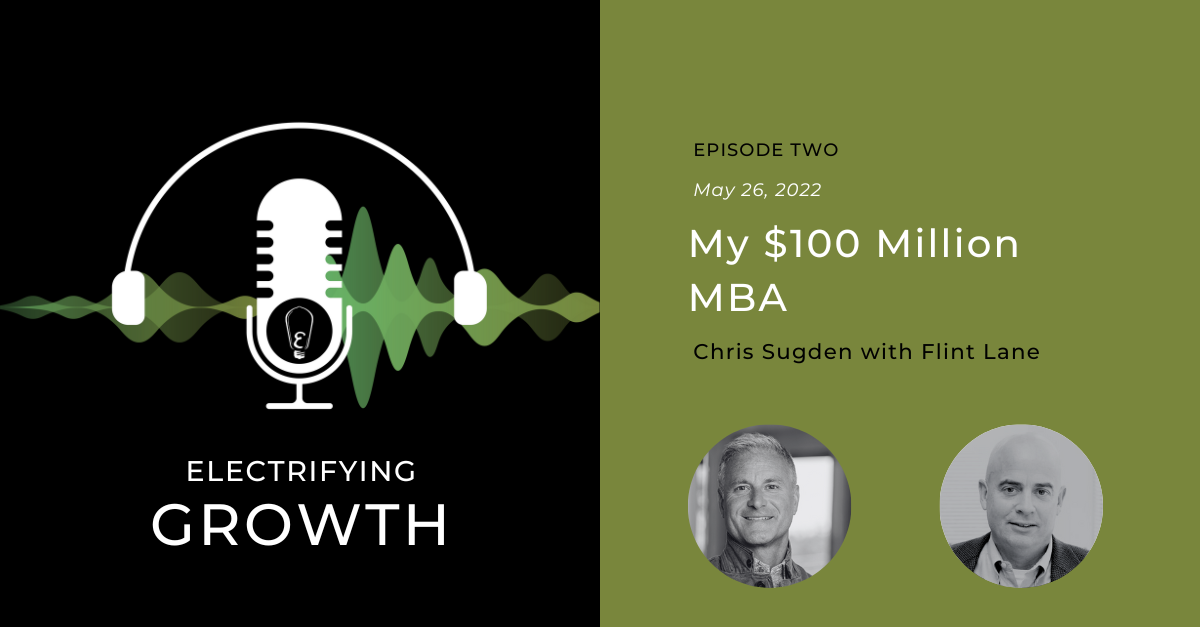Flint Lane is the Founder & former CEO of BillTrust, a B2B order-to-cash payment software. He launched the company over 20 years ago and has since gone public, maintained a 98% customer satisfaction rating, and been named one of the Best Place to Work in New Jersey for 10 years running. Lane raised $100 million in two years. Then, his company went under.
He jokes that those two years were his $100 million MBA. Lane sat down with Managing Partner Chris Sugden to share sage advice from his experience leading through turbulent markets.
Below are five key takeaways from their conversation.
It’s Not How, but Who
Lane pleads with founders to be diligent and detailed in their search for investments. “I think a lot of people think about raising money as you either do it or you don't. And that is just wildly incorrect. Who you raise money from is the far more interesting question. The biggest mistake I made was not raising $100 million. It was who we raised it from and who we allowed on the board.”
He also preaches that founders must source board members like they do employees. If someone is actively seeking a position on your board, they’re most likely not the best long-term partner. The best board members are in high demand and busy. You should be the one seeking them.
Holding Board Members Accountable
Lane uses “homework assignments” to keep board members engaged and accountable throughout the year, not just quarterly when they meet all together. Whether it’s an introduction to an investor, job candidate or partner, it’s the founder’s job to hold them to their word. “When they know you're going to hold them accountable, they tend to do things faster.”
“Hire slow, fire fast…
… is BS”, says Lane. Instead of keeping a short leash on your employees, give them plenty of challenges and hope they fail. Because without failure, they won’t grow. Effective leaders trust that employees will learn from their mistakes and be better because of their shortcomings – not despite them.
But Lane warns it’s a two-way street. If your employees don’t want to improve or they deny their weaknesses, it may be time to move on. Honesty is the best policy.
As a founder and CEO, Lane repeats that it’s his job to ensure people have the resources and opportunities to make the most of their talent. “Literally the most important job [is] making sure you have the right people in the right seats at the right time.”
Culture as Guiding Principle
As an original skeptic in the value of culture, Lane has flip-flopped. BillTrust has a set of values with which the company and employees are aligned. Pinpointing the pandemic as a major test, Lane says, “Culture is what you do in a tough situation, not when things are going great.”
How is culture affected by remote work? Even with employees being physically separate, culture remains core to everything BillTrust does.
What They Don’t Tell You About Public Companies
Although 75% of operations are identical to life in a private company, running a public organization has an added level of pressure. Lane learned this lesson the hard way. “What's been unexpected and challenging is this divorce of our performance with the scoreboard. I'm a big scoreboard guy. We've been crushing it, but our stock is getting hammered.”
And during the current economic downturn, Lane proclaims everything will be all right. Every successful organization will endure several “bad patches.”
Subscribe to Electrifying Growth for more on Flint, his story, and to prove the concept that we truly learn more from our failures than our successes.


